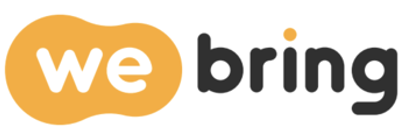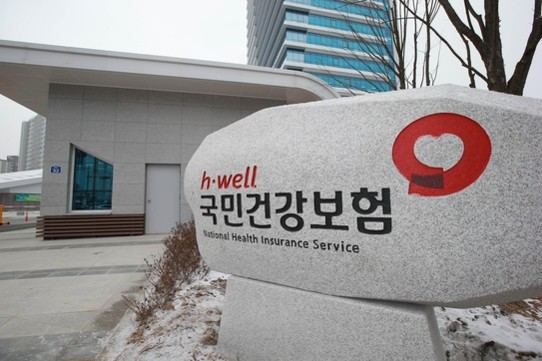If you’re an international student staying in South Korea for an extended period, it’s essential to understand the healthcare and insurance systems. Without insurance, medical bills can become a significant financial burden if you unexpectedly fall ill or have an accident. Fortunately, the Korean government mandates or recommends enrollment in the National Health Insurance Service (NHIS) for international students who meet certain eligibility criteria, allowing access to medical services at relatively low costs. In this article, we’ll delve into Korea’s national health insurance system, important things to note when visiting a hospital, as well as health checkups, providing an overall understanding of the medical system that international students should be aware of.
1) Overview of National Health Insurance (NHIS)
South Korea operates a public health insurance system called the National Health Insurance. Most Korean citizens and some foreign nationals (long-term residents) are required by law to enroll and pay a monthly premium. In return, a large portion of the cost of hospital visits, such as outpatient treatment and prescription medications, is subsidized under the insurance plan.
International students who stay in Korea for six months or more are considered “long-term foreign residents” and are required to enroll in NHIS by law (although this may change, so it’s best to check the latest information). Premiums are calculated based on income or assets, and students are usually offered a special discounted rate.

2) Enrollment Process
Once you have your Alien Registration Card and your stay in Korea exceeds six months, you become eligible for NHIS. Typically, after receiving your Alien Registration Card from the Immigration Office, you’ll either receive a guide from the National Health Insurance Corporation or you can directly contact them at 1577-1000 to confirm your enrollment. Many schools also provide orientation or assistance in this process through their international offices.
After enrollment, you’ll receive a monthly bill for your insurance premium. These premiums can be paid via bank transfer, at convenience stores, or with a credit card. If you miss a payment, you may lose your benefits when visiting a hospital, and prolonged payment delinquency might affect visa extensions, so it’s important to stay up to date.
3) Basic Guidelines for Using Hospitals
In Korea, medical institutions are broadly divided into primary (local clinics), secondary (general hospitals), and tertiary (university hospitals) care levels. For minor illnesses like colds, local clinics are the most convenient. For major surgeries or advanced tests, university hospitals are appropriate. With NHIS coverage, a significant portion of medical expenses is discounted, though special treatments, certain materials, and non-covered services may still cost more.
During your first hospital visit, present your “NHIS card” or Alien Registration Card at the reception desk to register your patient information (these days, instead of using a physical card, your insurance status can be verified via your resident or registration number). After selecting your department, you’ll receive a medical consultation, and if a prescription is issued, you can purchase medications at a pharmacy. If you have difficulty communicating, consider visiting hospitals with English-speaking doctors or using a Global Help Center service.
4) Utilizing Public Health Centers and Campus Health Clinics
As an international student, you can make use of public health centers operated by each district or your university’s student health center. Public health centers often provide vaccinations, health screenings, and basic treatment at very low or no cost. When in need of tuberculosis or hepatitis shots, or when it’s time for periodic national cancer screenings, they will guide you accordingly.
Some universities operate their own student health centers, offering basic consultations, first aid, and minor treatments. Services such as cold medication, wound care, and vitamin injections may be available, and some centers have resident doctors, making treatments inexpensive or even free. For chronic diseases or major surgeries, outside hospitals are necessary, but minor health issues may be economically handled on campus.
5) Dental, Eye, and Mental Health Services
In addition to general medical care, dental, ophthalmic, and psychiatric services tend to be more expensive. Even with NHIS, many procedures—such as prosthetics, implants, lenses, and counseling sessions—fall under non-covered categories. So much so that many international students are advised to complete dental treatment in their home country due to the high costs. Still, some dental procedures are partially covered, so consult with the clinic to confirm expenses.
For mental health care, services like counseling and psychological tests are often not covered, but some areas might be. Many universities offer free counseling through student centers, so if you’re experiencing stress or emotional challenges, start with on-campus resources.
6) Health Checkup System
In Korea, people over 40 are eligible for government-subsidized free health screenings. While most international students may not qualify due to age, long-term students who meet certain requirements (such as a minimum time after NHIS enrollment) may be eligible for general health checkups. If you’re unsure, check your eligibility on the National Health Insurance Corporation’s website.
If eligible, you can receive blood tests, urinalysis, X-rays, and basic physical exams at assigned hospitals either for free or at a reduced rate. Early detection from these checkups can help uncover and treat hidden conditions in advance.
7) Comparison with Private Insurance
In addition to NHIS, you may also opt for private international student insurance. Some countries recommend insurance from their homeland or suggest international policies upon arrival in Korea. Private insurance may reimburse actual medical expenses, but may not cover full amounts or specific conditions such as dental or psychiatric care. Therefore, some students choose to maintain both NHIS and private insurance, while others pick only one.
If your school offers group insurance for international students, carefully review its pros and cons. Understand what medical situations it covers and whether the paperwork is complicated. If you cannot opt out of NHIS, you may consider customizing your private plan to avoid overlapping coverage and keep premiums low.
8) Using Pharmacies and Medications
Prescription drugs like antibiotics and blood pressure medications require a doctor’s consultation and a valid prescription, which you can then take to a pharmacy. Thanks to NHIS, prescription drug costs are significantly lowered. On the other hand, over-the-counter medications like Tylenol or digestive aids are available without a prescription at pharmacies, but keep in mind that in Korea, even common cold remedies and painkillers are rarely sold in convenience stores, so finding a pharmacy is essential.
International students may find that some familiar medications from their home country are unavailable in Korea. It’s a good idea to bring an appropriate amount of personal medication, though excessive quantities or controlled substances can be restricted at customs—so check carefully. Near your school, if you ask a pharmacist, “Can I use health insurance here?”, they’ll likely explain that it only applies for prescription drugs with a valid script.
9) Communication and Translation Support
At some clinics, the doctor or nurse may not speak any English. In such cases, it’s helpful to write down basic medical terms such as symptoms, pain location, and medical history, or use a translation app. Larger hospitals, like university medical centers, often have international clinics or interpreter coordinators who can assist in English, Chinese, Japanese, etc. When making an appointment, ask whether English interpretation is available.
However, in smaller local clinics, English support may be limited. Prepare a few simple Korean sentences describing your symptoms in advance, and be ready to use gestures when the doctor asks, “Where does it hurt?”. To avoid these challenges, check international student communities online for recommendations on foreigner-friendly hospitals.
10) NHIS for international students, Conclusion
Health and insurance issues are an inevitable part of the international student experience, whether it’s a simple cold or a medical emergency—so being prepared is essential. Joining the Korean National Health Insurance can significantly reduce your medical expenses, and services for international patients are gradually expanding, so there’s no need to worry. Understanding basic procedures such as doctor appointments, prescription issuance, and pharmacy use can help you smoothly navigate Korea’s unfamiliar healthcare system.
Moreover, maintaining a healthy lifestyle through regular health checkups, adequate rest, and exercise is key to a successful study abroad experience. Falling sick in a foreign country can take a financial and emotional toll, so preventive care is crucial. By learning about NHIS, smart hospital visits, and communication strategies, you’ll be equipped for a safe and healthy stay as an international student in Korea.


WeBring Service : Provides personalized services to foreigners living in Korea
Exclusive offer: Introducing foreign car rental in Korea, WeBring-SoCar

